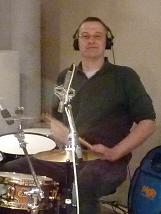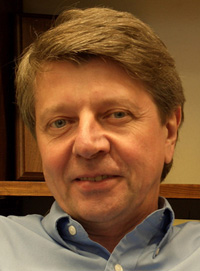 Krzysztof (Kris) Matyjaszewski received his PhD degree in 1976 at the Polish Academy of Sciences under Prof. S. Penczek. Since 1985 he has been at Carnegie Mellon University where he is currently J. C. Warner University Professor of Natural Sciences and director of Center for Macromolecular Engineering. He is also Adjunct Professor at the University of Pittsburgh and at the Polish Academy of Sciences. Kris is the editor of Progress in Polymer Science and Central European Journal of Chemistry. His publications have been cited over 42,000 times. His research interests include controlled/living radical polymerization, catalysis, environmental chemistry, and advanced materials for optoelectronic and biomedical applications.
Krzysztof (Kris) Matyjaszewski received his PhD degree in 1976 at the Polish Academy of Sciences under Prof. S. Penczek. Since 1985 he has been at Carnegie Mellon University where he is currently J. C. Warner University Professor of Natural Sciences and director of Center for Macromolecular Engineering. He is also Adjunct Professor at the University of Pittsburgh and at the Polish Academy of Sciences. Kris is the editor of Progress in Polymer Science and Central European Journal of Chemistry. His publications have been cited over 42,000 times. His research interests include controlled/living radical polymerization, catalysis, environmental chemistry, and advanced materials for optoelectronic and biomedical applications.
Please follow the link to get more information about Kris’ research group and his recent paper in Polymer Chemistry.
What was your inspiration in becoming a chemist?
Chemistry is a central science that bridges efficiently with many other disciplines. Perhaps the most exciting is its molecular aspect enabling creation of new compounds and new matter.
What was the motivation behind the research in your recent Polymer Chemistry paper? (DOI: 10.1039/C1PY00050K)
Controlled radical polymerization, including ATRP, allows chemists to link well-defined synthetic polymers with inorganics but also with natural products. Using genetically modified GFP with ATRP initiating sites and entrapping it inside nanogels is a continuation of collaboration with Ryan Mehl’s group and was spearheaded by Saadyah Averick, a talented graduate student.
Why did you choose Polymer Chemistry to publish your work?
We were invited to contribute to a special issue in this new interesting journal.
At which upcoming conferences may our readers meet you?
European Polymer Federation Meeting in Granada in June 2011.
Together with Brent Sumerlin and Nick Tsarevsky, we are organizing the 6th Controlled Radical Polymerization in Denver in late August 2011.
How do you spend your spare times?
I wish I will have some spare time…












 Franck D’Agosto studied chemistry at the Ecole Nationale Supérieure de Chimie in Mulhouse (France). He completed a PhD in Polymer Chemistry at the joint unit between CNRS and bioMérieux (University of Lyon, France) before working at the University of Sydney (Australia) as a postdoctoral fellow in the Key Center for Polymer Colloids. Since 2002, he has been a researcher at the CNRS in the Chemistry and Process of Polymerization Team in C2P2 laboratory (Lyon, France). His research interests focus on the control of polymer architectures by the use of different polymerization chemistries – such as catalytic and controlled free radical polymerizations – either performed in solution or in dispersed media.
Franck D’Agosto studied chemistry at the Ecole Nationale Supérieure de Chimie in Mulhouse (France). He completed a PhD in Polymer Chemistry at the joint unit between CNRS and bioMérieux (University of Lyon, France) before working at the University of Sydney (Australia) as a postdoctoral fellow in the Key Center for Polymer Colloids. Since 2002, he has been a researcher at the CNRS in the Chemistry and Process of Polymerization Team in C2P2 laboratory (Lyon, France). His research interests focus on the control of polymer architectures by the use of different polymerization chemistries – such as catalytic and controlled free radical polymerizations – either performed in solution or in dispersed media.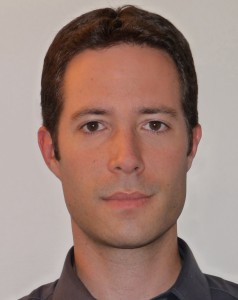 I am delighted to announce that
I am delighted to announce that 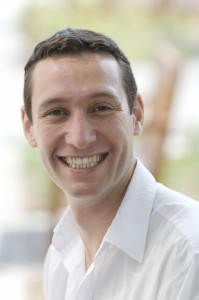
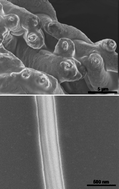
 Levent Toppare is a professor of chemistry at the Department of Chemistry, Department of Polymer Science and Technology and Department of Biotechnology in Middle East Technical University with an expertise in electrochemistry. He is also a member of Center for Solar Energy Research and Applications (GÜNAM). His research interests include conducting polymers and his group has recently been involved in electrochromism, electrochromic devices and photovoltaic cells. Toppare obtained his PhD (1982) degree from METU. He has published over 300 scientific papers and he is the recipient of British Council, Fulbright and Alexander von Humboldt Scholarships. Please follow the links for further information on the
Levent Toppare is a professor of chemistry at the Department of Chemistry, Department of Polymer Science and Technology and Department of Biotechnology in Middle East Technical University with an expertise in electrochemistry. He is also a member of Center for Solar Energy Research and Applications (GÜNAM). His research interests include conducting polymers and his group has recently been involved in electrochromism, electrochromic devices and photovoltaic cells. Toppare obtained his PhD (1982) degree from METU. He has published over 300 scientific papers and he is the recipient of British Council, Fulbright and Alexander von Humboldt Scholarships. Please follow the links for further information on the 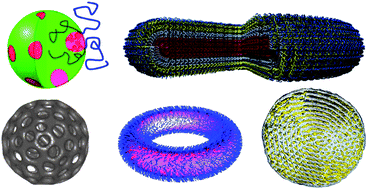
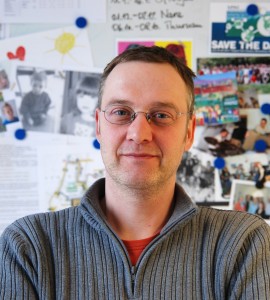 Helmut Schlaad received his chemistry diploma from the University of Mainz, Germany, in 1993. He continued his studies in Mainz and completed his Ph.D. in 1997 on anionic polymerization of (meth)acrylates under the supervision of Prof. Dr. Axel H. E. Müller. In 1998, he went to the University of Massachusetts at Lowell, USA, to work with Prof. Dr. Rudolf Faust in the field of cationic polymerization of vinyl monomers. In 1999, he joined the Max Planck Institute of Colloids and Interfaces, shortly before the institute moved from Teltow to its new location in Golm, Germany, to lead the project “Amphiphilic Block Copolymers” (workedfor habilitation, finished in 2004) in the group of Prof. Dr. Dr. Markus Antonietti. His research is devoted to (i) the development of new controlled polymerization techniques, modular synthetic pathways, and “thio-click” chemistry (ii) advanced characterization of functional polymers, and (iii) study of complex structure formation of bioinspired (co-)polymers through specific non-covalent interactions. Please follow the link for further information on
Helmut Schlaad received his chemistry diploma from the University of Mainz, Germany, in 1993. He continued his studies in Mainz and completed his Ph.D. in 1997 on anionic polymerization of (meth)acrylates under the supervision of Prof. Dr. Axel H. E. Müller. In 1998, he went to the University of Massachusetts at Lowell, USA, to work with Prof. Dr. Rudolf Faust in the field of cationic polymerization of vinyl monomers. In 1999, he joined the Max Planck Institute of Colloids and Interfaces, shortly before the institute moved from Teltow to its new location in Golm, Germany, to lead the project “Amphiphilic Block Copolymers” (workedfor habilitation, finished in 2004) in the group of Prof. Dr. Dr. Markus Antonietti. His research is devoted to (i) the development of new controlled polymerization techniques, modular synthetic pathways, and “thio-click” chemistry (ii) advanced characterization of functional polymers, and (iii) study of complex structure formation of bioinspired (co-)polymers through specific non-covalent interactions. Please follow the link for further information on 